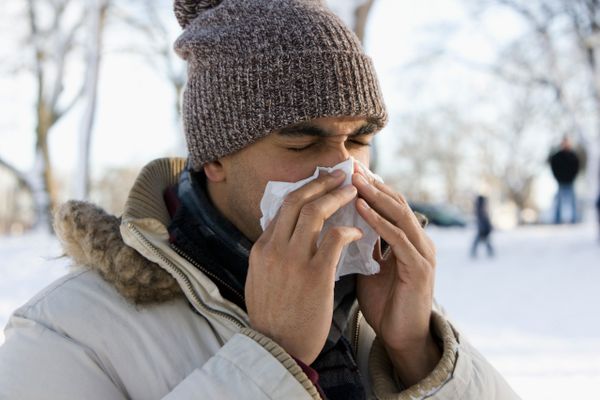
Blowing your nose seems like something you should be able to do without worrying you're going to hurt yourself. After all, facial tissue and pocket handkerchiefs exist for the express purpose of having something to blow snot into, right? But, depending on how vigorously you blow, clearing out your nose might not be as safe or hygienic as it seems.
You might be called to blow your nose for a variety of reasons — your excess nasal mucus may be due to a cold, a sinus infection (sinusitus), allergies or because you've been crying all day on account of a perfectly natural existential crisis. Whatever the reason, you're uncomfortably stuffed up and you want relief. But what are the dangers of covering your nose with a tissue and honking?
Advertisement


